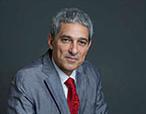Citation:
Miller KE, Avila PC, Khan YW, Word CR, Pelz BJ, Papadopoulos NG, Peebles SR, Heymann PW. Wheezing exacerbations in early childhood: evaluation, treatment, and recent advances relevant to the genesis of asthma. J Allergy Clin Immunol Pract. 2014;2(5):537-43.
Abstract:
Children who begin wheezing during early childhood are frequently seen by health care providers in primary care, in hospitals, and in emergency departments, and by allergists and pulmonologists. When a young child, such as the 2 year-old patient presented here, is evaluated for wheezing, a frequent challenge for clinicians is to determine whether the symptoms represent transient, viral-induced wheezing or whether sufficient risk factors are present to suspect that the child may experience recurrent wheezing and develop asthma. Most factors that influence prognosis are not mutually exclusive, are interrelated (ie, cofactors), and often represent gene-environment interactions. Many of these risk factors have been, and continue to be, investigated in prospective studies to decipher their relative importance with the goal of developing new therapies and interventions in the future. The etiologies of wheezing in young children, diagnostic methods, treatment, prognostic factors, and potential targets for prevention of the development of asthma are discussed.
